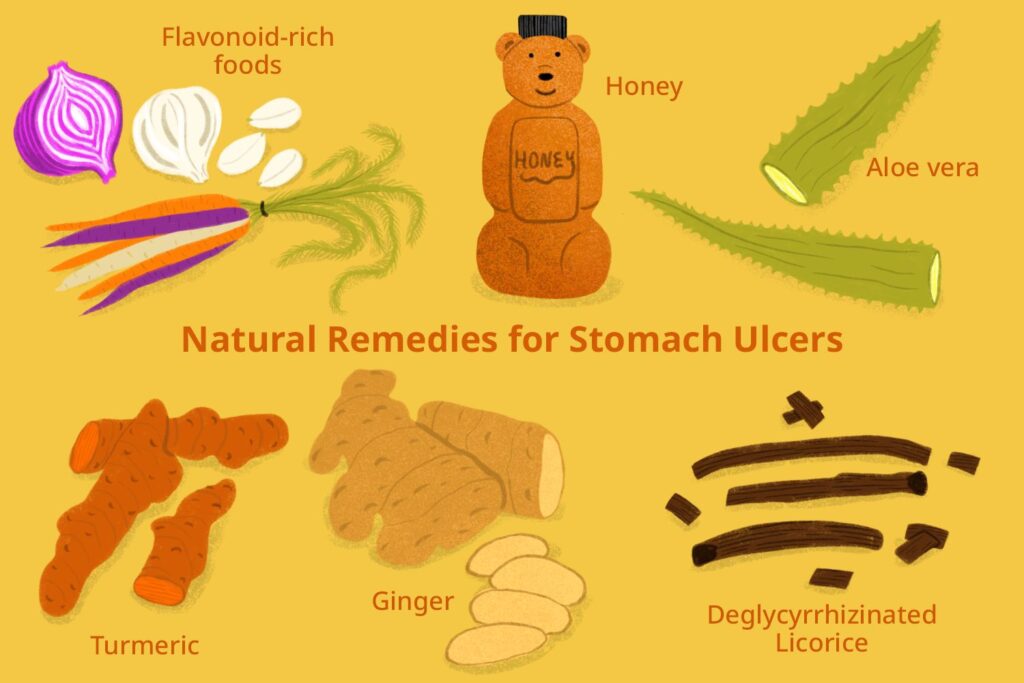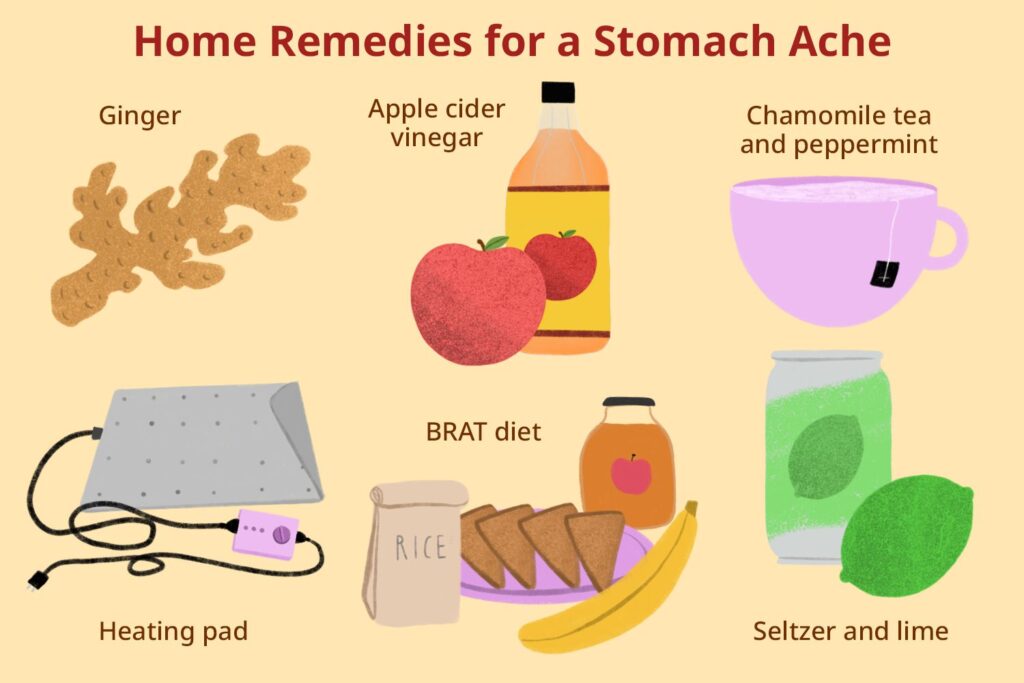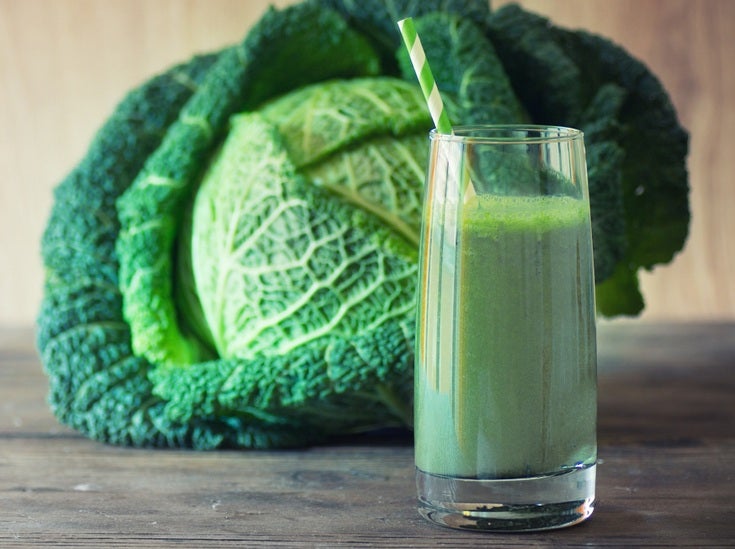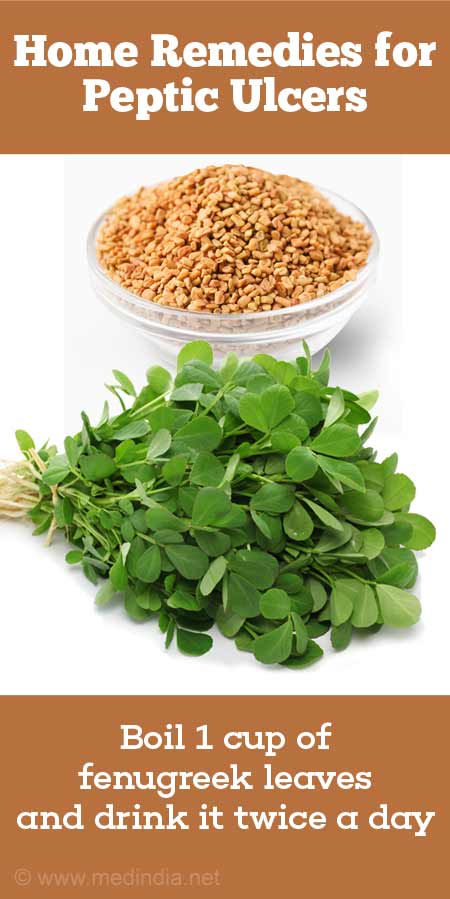Have you ever experienced the uncomfortable and sometimes painful symptoms of a stomach ulcer? If so, you’re definitely not alone. Stomach ulcers affect millions of people worldwide, but the good news is that there are natural remedies that can help soothe your stomach and promote healing. In this article, we’ll dive into some of these remedies and provide you with valuable information to find relief.
When it comes to stomach ulcers, it’s important to address the root cause and provide relief for the symptoms. Many natural remedies can help with both of these aspects. From soothing herbal teas like chamomile and peppermint, to incorporating aloe vera and cabbage juice into your diet, there are various options that can promote healing and reduce inflammation in the stomach. Additionally, adopting a balanced and nutritious diet, avoiding triggers like spicy foods and excessive caffeine, and managing stress levels can all contribute to the healing process. If you’re curious to learn more about how these natural remedies work, stay tuned for the rest of this article, where we’ll delve into each remedy in more detail and provide some helpful tips along the way.
Understanding Stomach Ulcers
Stomach ulcers, also known as peptic ulcers, are open sores that form on the lining of the stomach, upper small intestine, or esophagus. These ulcers can cause a range of discomforting symptoms and complications if left untreated. Understanding the causes, symptoms, and complications of stomach ulcers is crucial in effectively managing and treating this condition.
Causes of Stomach Ulcers
Stomach ulcers are primarily caused by a bacterial infection called Helicobacter pylori (H. pylori). This bacteria is responsible for over 80% of all stomach ulcers. Another common cause is the long-term use of nonsteroidal anti-inflammatory drugs (NSAIDs) such as aspirin and ibuprofen. These medications can disrupt the protective lining of the stomach, leading to the formation of ulcers. Other contributing factors include excessive alcohol consumption, smoking, and a family history of stomach ulcers.
Symptoms of Stomach Ulcers
Stomach ulcers can present a variety of symptoms, which may vary in intensity and duration. The most common symptom is a gnawing or burning pain in the abdomen, typically felt between meals and at night. This pain can be alleviated temporarily by eating or taking antacids. Other symptoms may include bloating, nausea, vomiting, and unexplained weight loss. In severe cases, individuals may experience complications such as bleeding ulcers, perforation of the stomach lining, or gastric outlet obstruction.
Complications of Stomach Ulcers
If left untreated, stomach ulcers can lead to several complications that can severely impact an individual’s health. Bleeding ulcers can cause symptoms such as bloody vomit or dark, tarry stools. In rare cases, bleeding can be severe and life-threatening. Perforation, or a hole in the stomach or intestinal lining, can lead to infection and require immediate medical attention. Gastric outlet obstruction, characterized by the blockage of food from passing through the stomach, can cause persistent vomiting, weight loss, and malnutrition.
Conventional Treatments for Stomach Ulcers
Conventional treatments for stomach ulcers typically involve a combination of medications to reduce stomach acid production and eradicate the underlying bacterial infection.
Antibiotics for Stomach Ulcers
Antibiotics are crucial in treating stomach ulcers caused by H. pylori infections. These medications are prescribed by a healthcare professional and work to kill the bacteria responsible for the infection. Common antibiotics used for this purpose include amoxicillin, clarithromycin, and metronidazole. It is important to complete the entire course of antibiotics as prescribed to effectively eliminate the infection and prevent recurrence.
Proton Pump Inhibitors for Stomach Ulcers
Proton pump inhibitors (PPIs) are medications that reduce stomach acid production, allowing the ulcers to heal. These drugs provide relief from symptoms and contribute to the overall healing process. Examples of PPIs commonly prescribed for stomach ulcers include omeprazole, lansoprazole, and esomeprazole. It is important to take these medications as directed by a healthcare professional.
The Role of Natural Remedies
While conventional treatments play a crucial role in managing stomach ulcers, natural remedies can also be beneficial in alleviating symptoms and promoting healing. These remedies often focus on reducing inflammation, enhancing gut health, and providing soothing effects.
Benefits of Natural Remedies for Stomach Ulcers
Natural remedies for stomach ulcers offer several advantages. They are often gentler on the body with minimal side effects compared to conventional medications. Additionally, natural remedies can provide relief from symptoms while supporting the overall health of the digestive system. Many natural remedies also possess antimicrobial and anti-inflammatory properties, which can aid in healing the ulcers and preventing further complications.
Safety of Natural Remedies for Stomach Ulcers
Natural remedies for stomach ulcers are generally safe when used as directed. However, it is essential to consult with a healthcare professional before incorporating any natural remedies into your treatment plan, especially if you are currently taking medications or have underlying health conditions. Some natural remedies may interact with medications or exacerbate existing conditions, so professional guidance is crucial.
Herbal Remedies for Stomach Ulcers
Herbal remedies have been used for centuries to manage various health conditions, including stomach ulcers. Here are a few herbal remedies that have shown potential in soothing and healing stomach ulcers.
Licorice Root
Licorice root has been traditionally used to treat stomach ulcers due to its anti-inflammatory and soothing properties. It helps to protect the stomach lining, reduce inflammation, and promote healing. Licorice root can be consumed as a tea, extract, or chewable tablets. However, it is important to note that long-term use of licorice root may elevate blood pressure, so it is advisable to consult with a healthcare professional before use.
Marshmallow Root
Marshmallow root is known for its ability to soothe and protect the digestive tract. It forms a protective layer on the stomach lining, reducing inflammation and promoting healing. Marshmallow root can be consumed as a tea or taken in capsule form. As with any herbal remedy, it is important to follow the recommended dosage and consult with a healthcare professional before use.
Chamomile
Chamomile is a well-known herbal remedy that exhibits anti-inflammatory and calming properties. It can help soothe the stomach and alleviate symptoms associated with stomach ulcers. Chamomile can be consumed as a tea or taken in supplement form. However, individuals with allergies to plants in the daisy family should exercise caution when using chamomile.
Dietary Approaches for Stomach Ulcers
In addition to incorporating natural remedies, dietary changes can play a significant role in managing and healing stomach ulcers. By avoiding trigger foods and including healing foods, individuals can support the healing process and reduce symptoms.
Avoiding Trigger Foods
Certain foods can exacerbate stomach ulcers and should be avoided. These include spicy foods, alcohol, caffeine, acidic foods (such as citrus fruits and tomatoes), and fatty or fried foods. Paying attention to your body’s response to different foods and avoiding those that trigger symptoms can help prevent discomfort and promote healing.
Including Healing Foods
Including healing foods in your diet can provide essential nutrients and support the healing process of stomach ulcers. These foods include fruits and vegetables (especially those high in antioxidants), whole grains, lean proteins, and probiotic-rich foods. Probiotics, such as yogurt and fermented foods, can help promote a healthy balance of gut bacteria and aid in digestion.
Focusing on Gut Health
Maintaining a healthy gut is crucial in managing stomach ulcers. In addition to incorporating healing foods, it is important to prioritize adequate fiber intake, drink plenty of water, and avoid excessive use of antibiotics. Prebiotic fibers, found in foods like bananas, onions, and garlic, can also support the growth of beneficial gut bacteria.
Lifestyle Changes to Aid Healing
Apart from dietary changes and natural remedies, certain lifestyle modifications can contribute to the healing process and alleviate symptoms associated with stomach ulcers.
Reducing Stress
Stress is known to worsen symptoms of stomach ulcers and delay the healing process. Incorporating stress management techniques such as relaxation exercises, deep breathing, and meditation can help reduce stress levels.
Getting Adequate Sleep
Adequate sleep is crucial for overall health and healing. Aim for 7-9 hours of uninterrupted sleep each night to support the body’s natural healing processes.
Exercise and Physical Activity
Engaging in regular physical activity can promote a healthy digestive system and aid in managing stomach ulcers. Incorporate exercises such as walking, yoga, or swimming into your routine to improve digestion and reduce inflammation.
Supplements for Stomach Ulcers
Supplements can be used in conjunction with natural remedies and lifestyle changes to support the healing process of stomach ulcers. Here are a few supplements that have shown promise in managing this condition.
Aloe Vera
Aloe vera is known for its soothing and anti-inflammatory properties. Consuming aloe vera juice or taking aloe vera supplements can help alleviate symptoms and promote the healing of stomach ulcers. However, it is important to choose high-quality products and follow the recommended dosage.
Mastic Gum
Mastic gum is a natural resin obtained from the Mastic tree. It has antimicrobial properties and has been traditionally used to treat stomach ulcers. Taking mastic gum supplements can help eradicate H. pylori bacteria and reduce inflammation in the stomach lining.
Zinc
Zinc is an essential mineral that plays a vital role in the healing process. Adequate zinc levels are necessary for the body to repair damaged tissues, including stomach ulcers. Taking zinc supplements can support the healing process and reduce symptoms associated with stomach ulcers.
Traditional Practices for Stomach Ulcers
In addition to natural remedies and dietary changes, traditional practices such as acupuncture, meditation, and yoga can complement conventional treatments and provide additional support in managing stomach ulcers.
Acupuncture
Acupuncture involves the insertion of fine needles into specific points on the body to stimulate healing and balance the flow of energy. Some studies suggest that acupuncture can help reduce pain and improve gastrointestinal symptoms associated with stomach ulcers.
Meditation and Mindfulness
Practicing meditation and mindfulness can help reduce stress and promote relaxation. By incorporating these practices into daily life, individuals can manage stress levels, which can have a positive impact on the healing process of stomach ulcers.
Yoga
Yoga combines gentle movements, breathing exercises, and meditation to promote overall health and well-being. Specific yoga poses and stretches can target the digestive system, supporting gastrointestinal health and aiding in the management of stomach ulcers.
Home Remedies for Stomach Ulcers
In addition to professional advice and natural remedies, there are several home remedies that individuals can try to alleviate symptoms and promote healing of stomach ulcers.
Cabbage Juice
Cabbage juice is a well-known home remedy for stomach ulcers. It is rich in antioxidants and contains nutrients that can help soothe the stomach lining and promote healing. Freshly prepared cabbage juice can be consumed daily to reduce symptoms.
Raw Honey
Raw honey possesses antibacterial and anti-inflammatory properties, making it beneficial in the management of stomach ulcers. Consuming a spoonful of raw honey can help soothe the stomach and promote healing. However, it is important to note that honey should not be given to children under the age of one due to the risk of botulism.
Apple Cider Vinegar
Although acidic, apple cider vinegar is believed to have alkalizing effects in the body. It can help balance the stomach’s pH levels and reduce symptoms of stomach ulcers. Dilute a tablespoon of apple cider vinegar in water and consume before meals to support the healing process.
Conclusion
Stomach ulcers can cause significant discomfort and complications if left untreated. While conventional treatments play a crucial role in managing and healing ulcers, natural remedies can provide additional support in alleviating symptoms and promoting overall gut health. By incorporating herbal remedies, dietary changes, lifestyle modifications, and traditional practices into your treatment plan, you can effectively manage stomach ulcers and support the healing process. Remember to consult with a healthcare professional before making any significant changes to your treatment plan and always prioritize your overall well-being.





